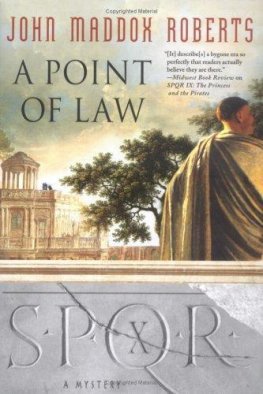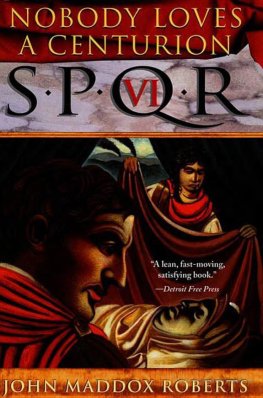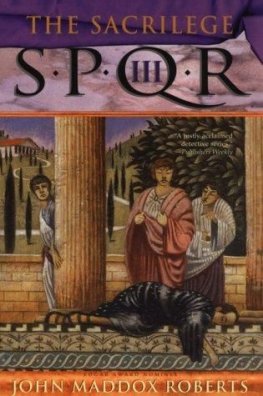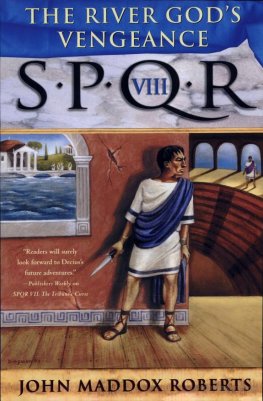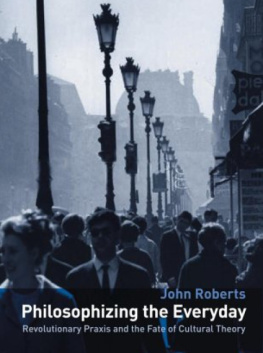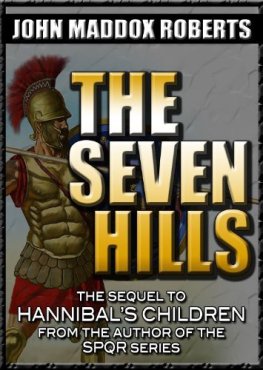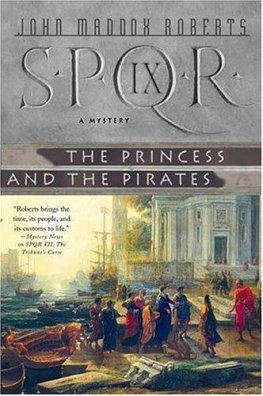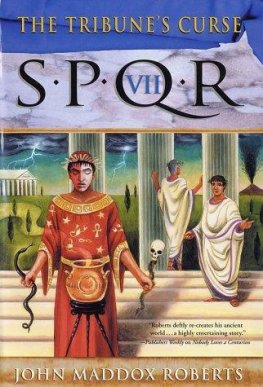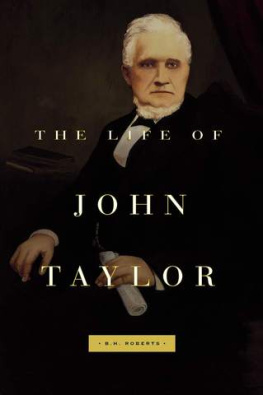John Roberts - The King Of Sacrifices
Here you can read online John Roberts - The King Of Sacrifices full text of the book (entire story) in english for free. Download pdf and epub, get meaning, cover and reviews about this ebook. genre: Detective and thriller. Description of the work, (preface) as well as reviews are available. Best literature library LitArk.com created for fans of good reading and offers a wide selection of genres:
Romance novel
Science fiction
Adventure
Detective
Science
History
Home and family
Prose
Art
Politics
Computer
Non-fiction
Religion
Business
Children
Humor
Choose a favorite category and find really read worthwhile books. Enjoy immersion in the world of imagination, feel the emotions of the characters or learn something new for yourself, make an fascinating discovery.

- Book:The King Of Sacrifices
- Author:
- Genre:
- Rating:3 / 5
- Favourites:Add to favourites
- Your mark:
- 60
- 1
- 2
- 3
- 4
- 5
The King Of Sacrifices: summary, description and annotation
We offer to read an annotation, description, summary or preface (depends on what the author of the book "The King Of Sacrifices" wrote himself). If you haven't found the necessary information about the book — write in the comments, we will try to find it.
The King Of Sacrifices — read online for free the complete book (whole text) full work
Below is the text of the book, divided by pages. System saving the place of the last page read, allows you to conveniently read the book "The King Of Sacrifices" online for free, without having to search again every time where you left off. Put a bookmark, and you can go to the page where you finished reading at any time.
Font size:
Interval:
Bookmark:
John Maddox Roberts
The King Of Sacrifices
The First Citizen rarely summons me. This may be because we detest one another so deeply. He has never bothered to have me killed because I am a relic of the old Republic he claims to have restored. As the oldest living senator I have a certain prestige. Besides, I am not that important. Once, my family controlled the most powerful voting blocs in the Senate, the Plebeian Assembly and the Centurionate Assembly. But that great generation of vigorous political men died in the civil wars and the remnants are scarcely worth my attention, much less his.
But I have certain talents that are unique, and there have been times when the First Citizen has had need of them. At such times he requests my presence, smiles his false smile, and seeks my aid. One such occasion occurred in my 73rd year.
I spent the morning dozing through a Senate meeting. As the power and importance of that august body dwindled, so did its speeches expand. One time-serving nobody after another got up to discourse windily upon trifles. My neighbors discreetly nudged me any time my snoring became obtrusive.
The session ended at noon, not a moment too early. I pushed myself to my feet with my walking stick and left the Curia. I didn't really need a stick, it just lent me an air of venerability. Once outside, I paused at the top of the steps to breathe the clean air and survey my City.
The sight was not altogether pleasing. There was still much in evidence that was ancient and familiar, but the spate of building that had been going on for more than twenty years had changed the City almost beyond recognition. Temples that had been simple, sober and dignified had become masterpieces of the confectioner's art, their facades tarted up with white marble and frothy carving and gilding. And some of the temples were new, erected not to honor the gods but to the glory of a single family.
There was, for instance, the temple of Venus Genetrix, the goddess from whom Caesar had claimed descent. A tenuous connection for the First Citizen, who was merely the grandson of Caesar's sister. And then there was the temple of Mars the Avenger. Mars had always had his shrines outside the City walls. Now he had been brought within, solely to remind everyone that the First Citizen had avenged (so he claimed) the murder of the great Caius Julius. Some of the new public buildings were begun by Caesar, but most bore the name of the First Citizen, or of his cronies: Agrippa and Maecenas. Somehow, the whole city had become his clientele.
I used to make fun of my father for indulging in this sort of good-old-days grumbling. Now that I am old I rather enjoy it.
My grumpy musings were interrupted by the arrival of my grandson, Decius the Youngest. He is nicknamed Paris for his exceptional looks. It is not good for one so young to be so handsome. It presages a life of trouble and a bad end. All the splendidly handsome men I have known came to a bad end: Milo, Marcus Antonius, Vercingetorix, they flourished briefly to great admiration and were gone. On the other hand, there is much to be said for dying young.
"Grandfather!" He ran up the steps, scattering senators and their hangers-on like chaff before a whirlwind. The boy had yet to dedicate his first beard and he possessed a commendable lack of respect for authority. He was breathing heavily and thrust a small scroll at me. "A letter from the Palace!"
I accepted it. "From Himself, I take it?" I said loudly, using the term his sycophants often used. Time was when only slaves used that term to refer to their master.
"How should I know?" he said, all innocence.
"Because you've read it, imp. The seal is broken."
He shrugged. "The messenger must have dropped it."
"What a liar. By the time I was your age I could lie far better than that. Let's see, now." I held the missive at arm's length and read loudly, as if I were hard of hearing:
''From the First Citizen to the venerable Senator Decius Caecilius Metellus, greeting." Actually, here he employed the name which he illegally usurped from a better man and which I refuse to use. Recently, the Senate had voted him the title of Augustus. The Senate can give him any silly title it likes. He will always be sneaky little Caius Octavius to me.
''The First Citizen requests the honor of your company in his home this afternoon, to confer upon a matter concerning the good of the Senate and People of Rome.'' I snorted. "Summoning me like some Oriental despot, is he? Well, that's just like him. Got himself into a tight spot again and needs me to get him out of it, no doubt!" All over the Curia steps, senators began sidling away from me, as if to clear a target range for Jove's thunderbolt. I love to see them do that.
"Father says you shouldn't talk like that," Paris said, quite unconcerned.
"Your father has grown disgustingly respectable these last few years. In his younger days there wasn't a professional criminal in Rome who could match him for villainy. Come along." I took him by the shoulder. "Let's go find something to eat and pay a visit to the baths and then we'll go see what the First Citizen wants."
On the waterfront near the Aemilian Bridge was a colorful little establishment called the Nemean Lion. That district of Rome is much devoted to Hercules and references to the demigod's legend are numerous. It was owned by a man named Ulpius who, in his youth, had been one of Milo's thugs. His daughter-in-law made the best pork sausage in Rome and each Saturnalia I gave them a nice present, so that they kept for me a reserve of fine, unwatered Falernian.
Since the day was fine we sat out front beneath the awning and watched the river traffic while Ulpius's granddaughters loaded the table with food and brought a flask of my private stock.
"Mother says you drink too early in the day," Paris said, lighting into the eatables. "She says you drink too much generally."
"She does, eh? Three generations of my relatives have said the same thing. Ive presided at most of their funerals. Im not going to face the First Citizen sober."
"Why do you hate him so much?" he mumbled around a mouthful of honeyed date cake.
"Because he destroyed the Republic and set up a monarchy and killed all the best men in Rome-all the true republicans."
"Then why didn't he kill you?" Precocious little bugger.
"By the time he got around to considering me, he'd decided to pose as the benevolent savior of the State. It's one of the political rules: Kill all your important enemies as soon as you seize power. The survivors will be so relieved that they'll forget all about it within a year. His great-uncle Julius Caesar neglected to kill his own enemies, and look what happened to him. Pretending respect and affection for me bolsters his image as the all-forgiving father of his country. It costs him nothing since I no longer count for anything, politically."
Truthfully, he didn't murder the Republic. It committed suicide. He just rearranged the carcass to suit him better. And most of the best men killed each other before Julian had a chance at them. No sense confusing the boy with political subtleties at so tender an age, though.
"So why are you willing to help him?"
"Why don't you finish your lunch?"
Thus fortified, and with the worst of my aches massaged from my bones at my favorite bathing establishment, I felt up to the long trudge up the Palatine and an interview with my least favorite Roman.
From the bottom of the steps we encountered guards. Caius Octavius makes a great show of being an ordinary citizen, living among his fellows without fear, and claimed that he never violated the ancient law against bringing armed soldiers into the City. The burly men who lounged around the residence wore togas, but they clinked as they moved and they studied me with an unsettling fixity.
Font size:
Interval:
Bookmark:
Similar books «The King Of Sacrifices»
Look at similar books to The King Of Sacrifices. We have selected literature similar in name and meaning in the hope of providing readers with more options to find new, interesting, not yet read works.
Discussion, reviews of the book The King Of Sacrifices and just readers' own opinions. Leave your comments, write what you think about the work, its meaning or the main characters. Specify what exactly you liked and what you didn't like, and why you think so.

